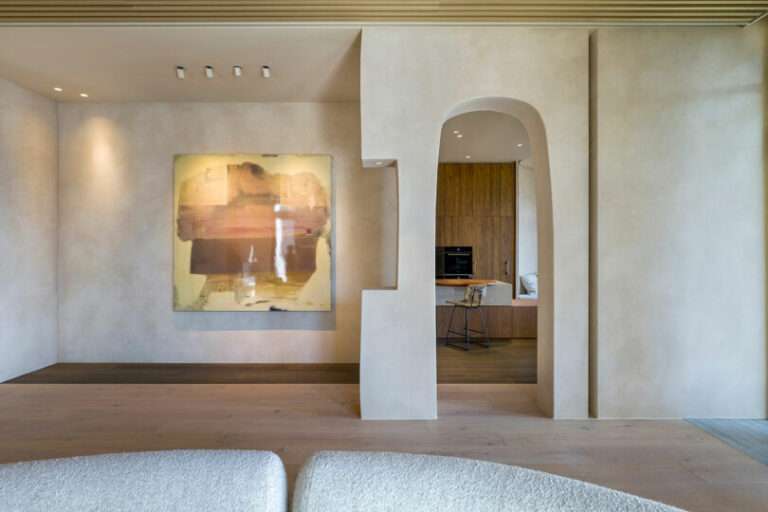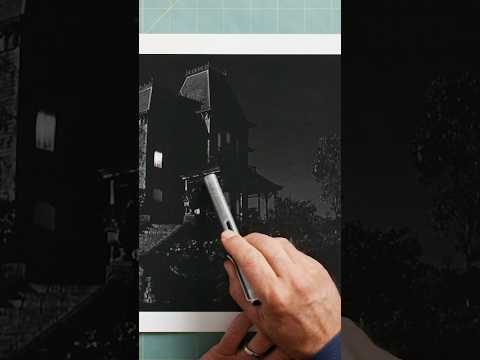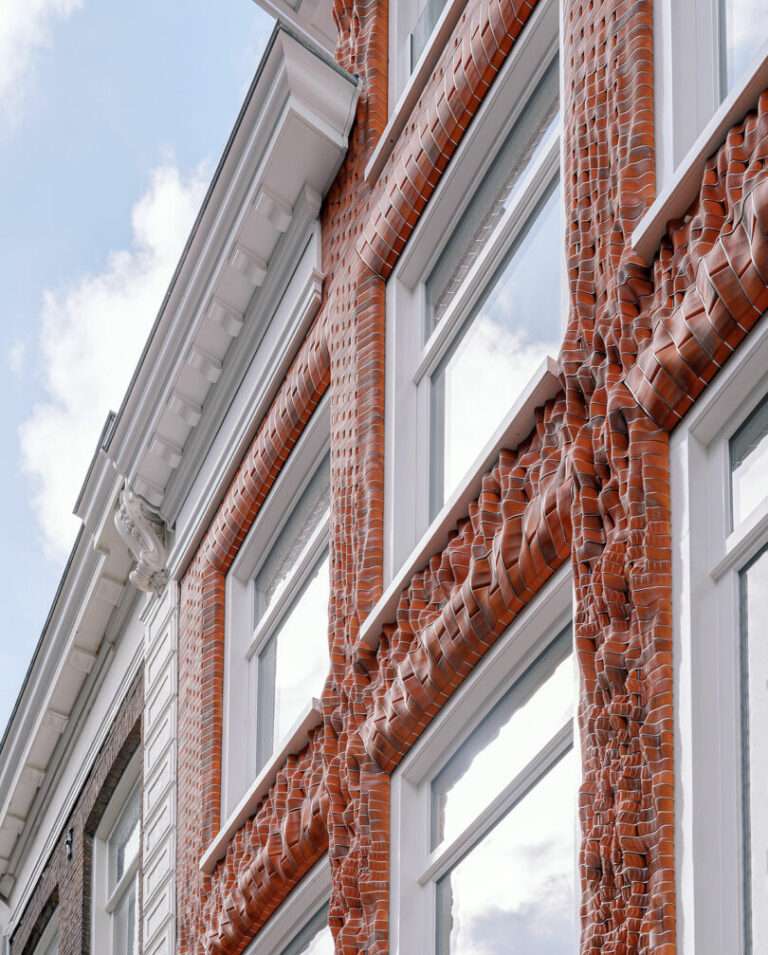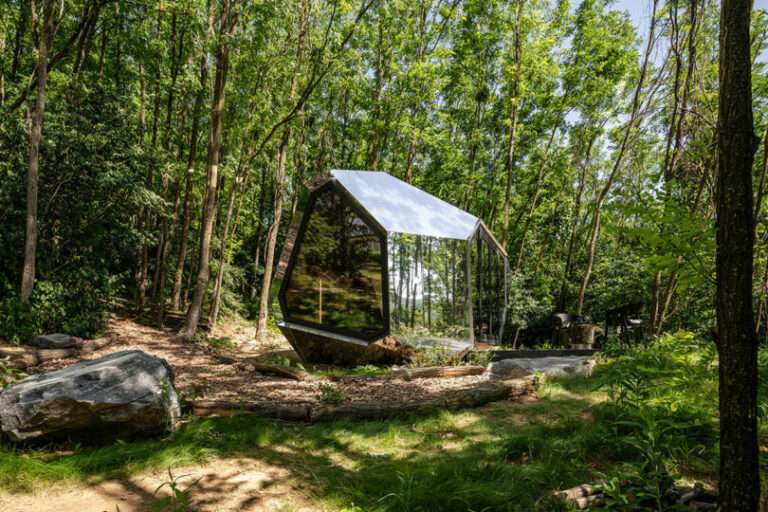An angular roof wrapped in translucent red-mesh panels crowns this Y-shaped pavilion in Sydney, designed by local studio Sam Crawford Architects.
Located on the disused lawn of a bowls club in Hurlstone Memorial Reserve, the timber-clad structure is designed as a flexible community centre with uninterrupted connections to the surrounding park.
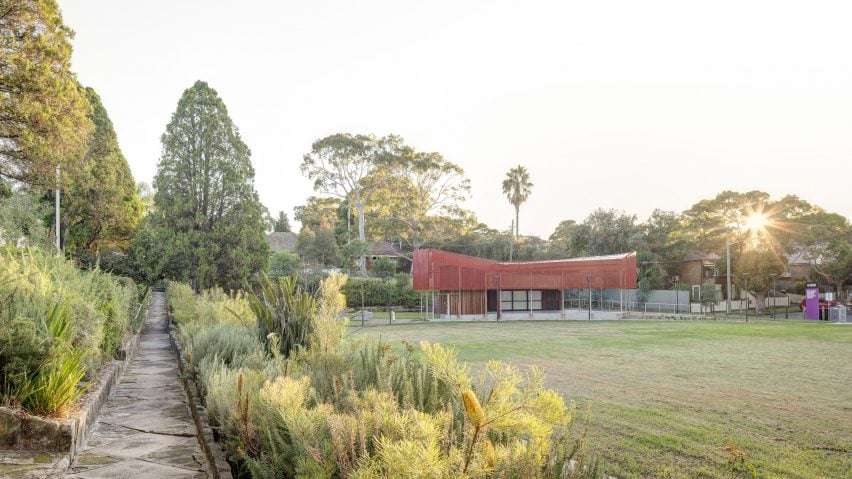
The pavilion hosts a multipurpose function room, kitchen, bathrooms and sheltered outdoor area bounded by low-lying landscaping and loosely defined public courtyards.
By utilising a sculptural Y-shaped layout, Sam Crawford Architects avoided creating a back to the building, ensuring a sense of openness from all directions.
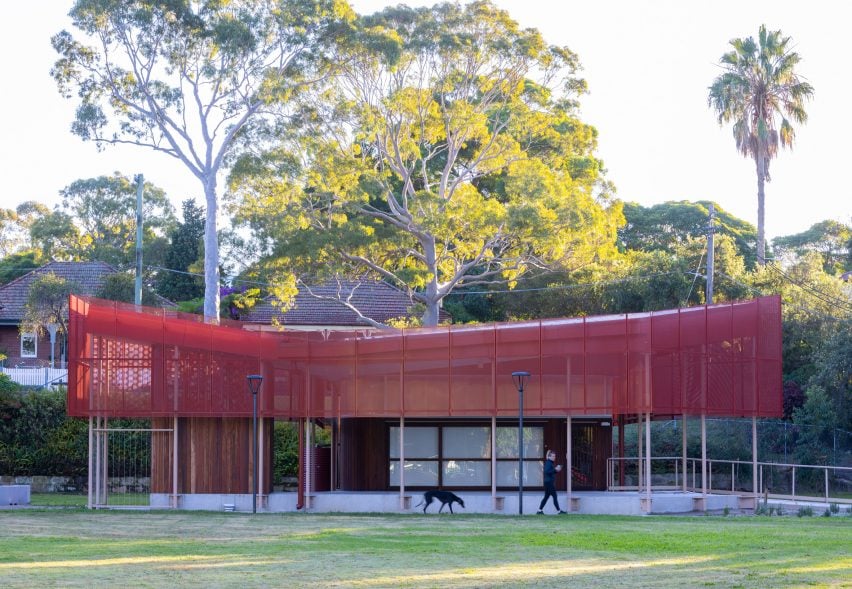
“The building is experienced in the round, with a playful and inviting form, drawing people towards and around it,” said the studio’s founder Sam Crawford.
“We wanted to create a building with a siting and form that promoted different pockets of space for different community use, as well as defining various park entry points and promoting park-user safety,” he continued.
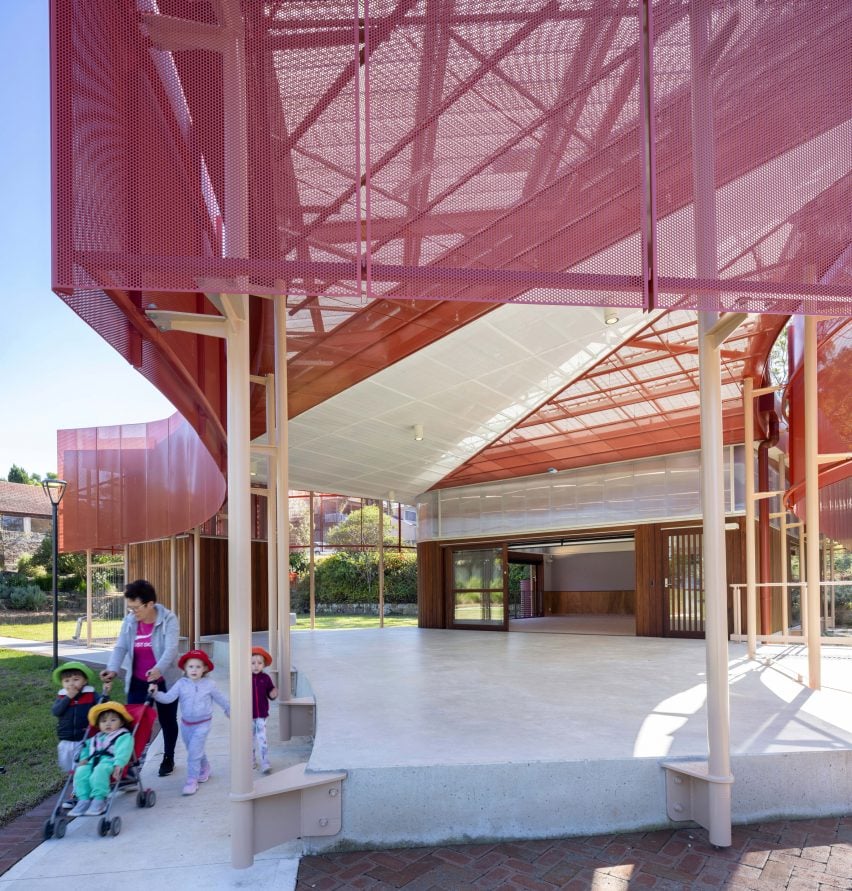
The red-mesh roof pitches towards the building edges and is designed to provide solar protection to clerestory windows along the facade.
By layering screens over the roof and integrating glass doors around the function room, the pavilion’s transparency changes across the day and takes on a shape-shifting quality as visitors move around it.
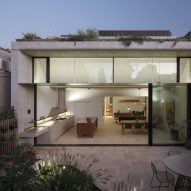
 Sam Crawford Architects tops Sydney home renovation with “garden oasis”
Sam Crawford Architects tops Sydney home renovation with “garden oasis”
At night, the centre is designed to “glow in the dark”, becoming a lantern-like beacon within Hurlstone Park Reserve.
“The use of mesh gives an ephemerality to the building as it changes across the day and night with lighting and weather conditions and seasons,” Crawford explained.
“From dusk, the mesh allows a gentle glow from the interior lighting to enhance visibility and safety for people utilising the park’s pathways and public transport connections.”
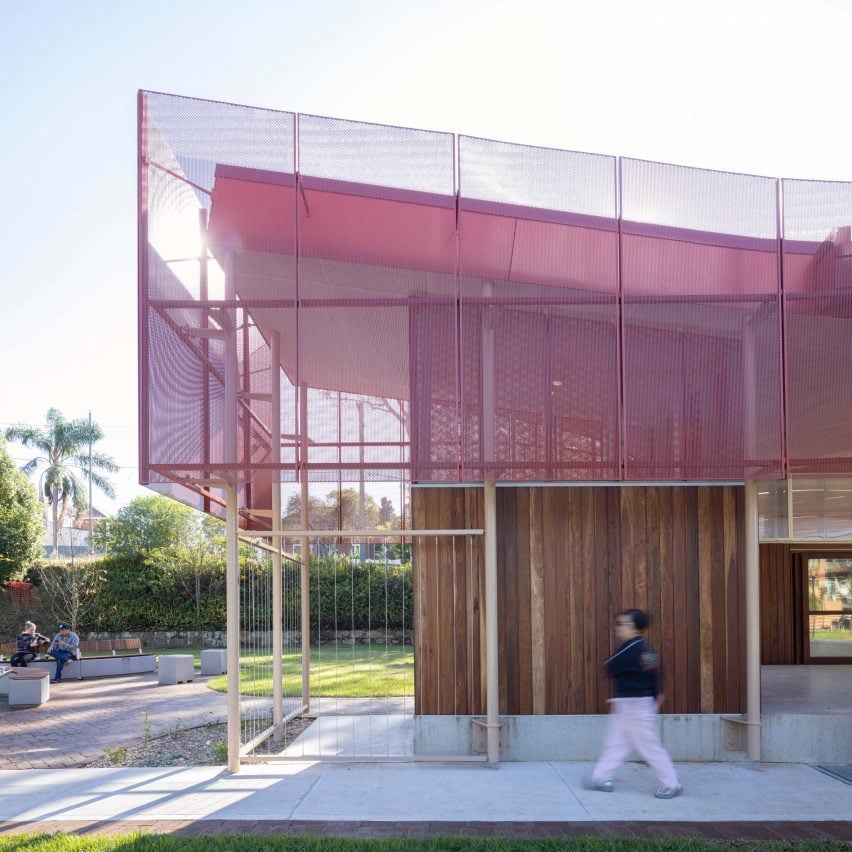
In response to the topography and flood zone constraints, the community centre is raised on a concrete plinth that also demarcates the building edge and creates an elevated viewpoint.
“The form responds to the sloping ground, including the lost creek line,” Crawford said. “A raised floor provides a freeboard for significant stormwater events, as well as spectator seating around the edge of the covered area.”
“It is also a fun edge for kids, and naturally draws people for gathering play, recreation, and ceremony,” he continued.
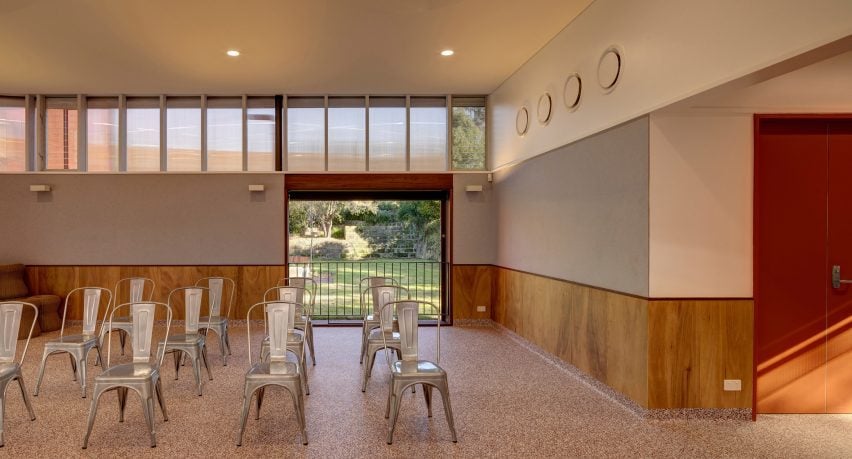
The pavilion’s material palette references the natural colours of the park reserve, with pink columns and panels made from spotted gum informed by the nearby angophora plants and trees.
Pared-back internal finishes are intended to be low maintenance and durable, while also acting as a canvas for the community to personalise.
“Spotted gum plywood wraps around the base of the function room, providing a tactile and sturdy material for a space that will constantly see furniture being moved around,” said Crawford. “Grey pinboard lines the mid-section of the wall to allow for those hiring the space to temporarily decorate.”
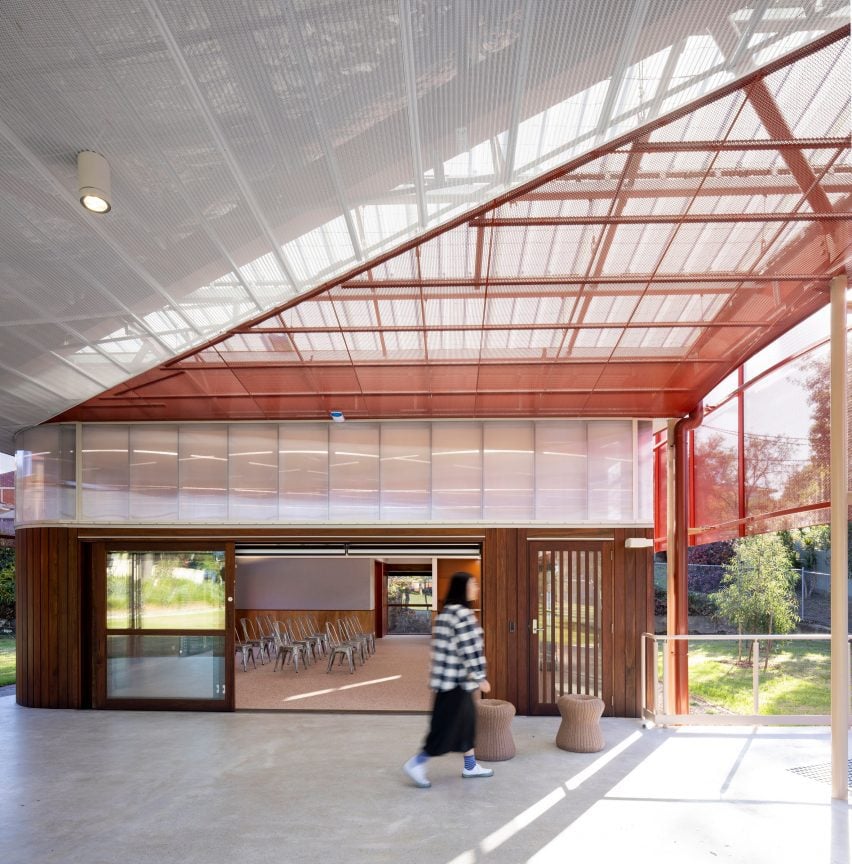
Crawford established his eponymous Sydney-based studio in 1999.
The studio has previously completed a home renovation topped with a hidden garden oasis in Sydney and a restaurant pavilion sheltered by a large steel-framed roof in Parramatta.
The photography is by Brett Boardman.
